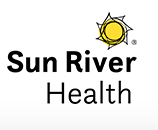
Chest pain can be scary.
While the pain may be caused by heart problems – and if so, you should immediately go to the emergency room – there are also many other potential causes, including problems stemming from muscles, nerves, the esophagus, lungs, or ribs.
Potential causes
Most often, chest pain manifests as either a sharp, stabbing or dull, aching sensation. If you feel a squeezing or tightening in your chest, the symptoms may be the result of a heart problem, so call 911 immediately.
The most common potential causes of chest pain include:
- Heart-related issues, including heart attack
- Digestive causes like swallowing disorders, acid reflux, or heartburn
- Injured ribs or sore muscles
- Lung-related issues
- Shingles
- Panic attack
Testing procedures
Your doctor will be able to help you determine what is causing your chest pain. If the pain is sudden or severe, head to the ER where they can run the following tests:
- Electrocardiogram (ECG): to test your heart’s electrical activity through electrodes attached to your skin
- Blood tests: to reveal the presence of enzymes that have been released from damaged heart muscle
- Chest X-Ray: to assess the size, shape, and condition of your heart, lungs, and major blood vessels
Depending on the results of these tests, your doctor may require follow-up testing. If the cause of your pain is still not determined, a follow-up with a cardiologist will likely be necessary.
Bottom line: take it seriously
While your chest pain may be coming from a minor issue, it also could be caused by a potentially fatal heart problem. Always take chest pain seriously and seek medical help as soon as possible.
If you are experiencing mild or persistent chest pain, visit us Sun River Health or your local doctor to get to the bottom of the issue. If the pain is sudden or severe, immediately call 911.
Sun River Health is a network of 43 Federally Qualified Health Centers (FQHCs) providing primary, dental, pediatric, OB-GYN, and behavioral health care to over 245,000 patients annually.
 This article is sponsored by Sun River Health.
This article is sponsored by Sun River Health.








